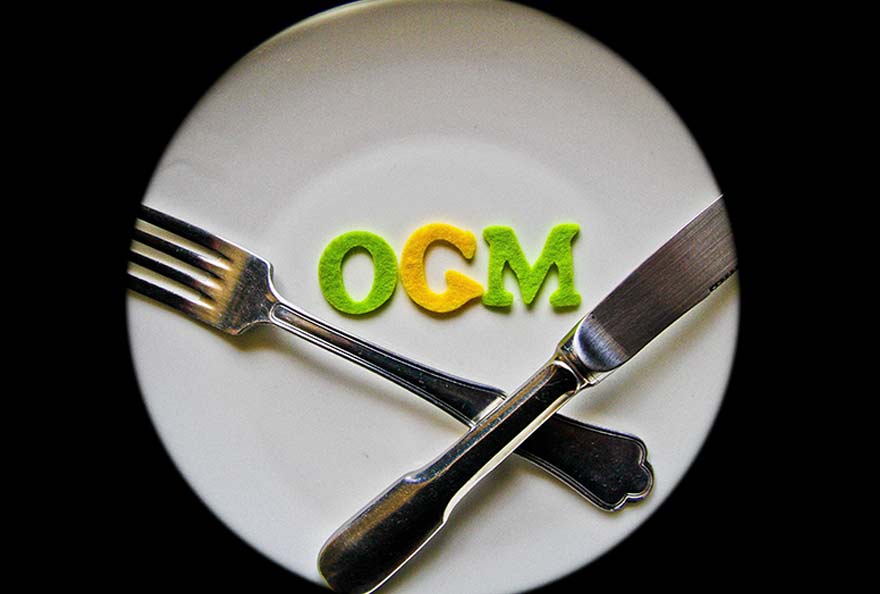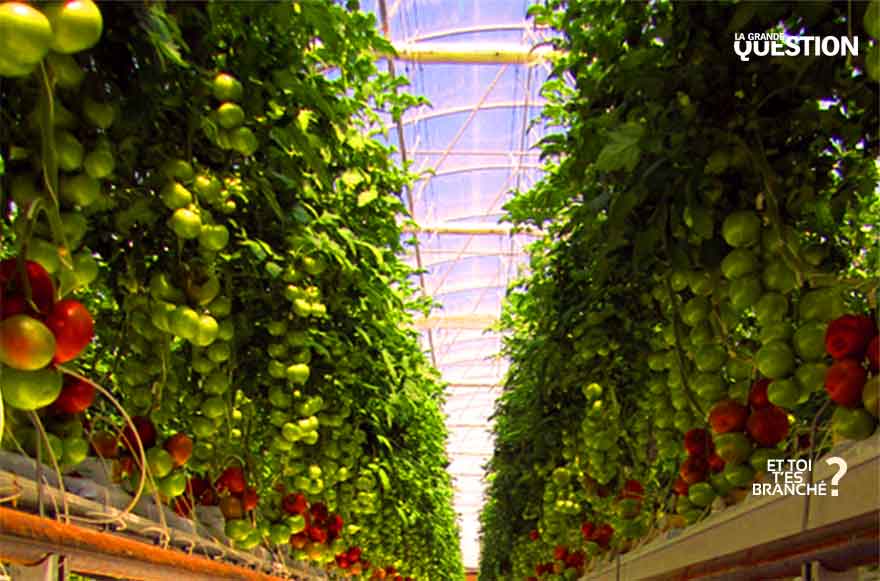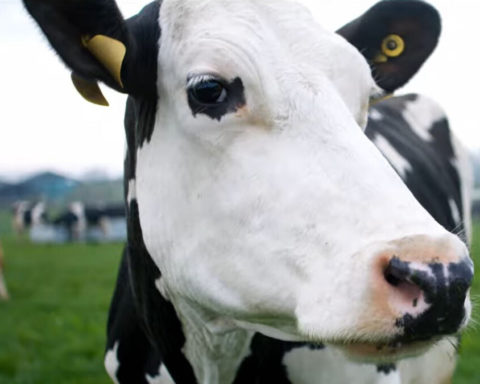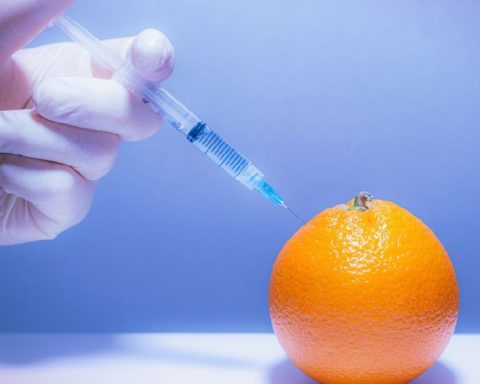New genetic techniques take all sorts of names depending on one's intentions: NBT (New breeding techniques), GMOs or GMOs (genetically modified organisms) ... They still have the same properties as GMOs (resistance to herbicides or insecticides in particular), but are not subject to their regulatory framework. Some associations are calling for the status of these biotechnologies to be clarified. The risk is indeed to see these "new GMOs" arriving on the market without the citizens' knowledge. In this context, the legal void encourages the promoters and opponents of GMOs to replay the trench warfare of the 1990s. A war of words that hides conflicts over the agricultural models defended by everyone. Decoding.
Manger from CRISPR/cas9 vegetables is not lethal! A Swedish researcher has announced that he has tasted cabbage with a genome that has been "reedited" using the new "gene copy and paste" technique in his laboratory. Stephan Jansson, from the University of Umea, staged this 'world premiere' with a journalist who shared his meal happily, according to a post published in Sciencemag. Do we have to make a big deal out of it? The demonstration aims to trivialize these genetic constructs and to push them onto the market without differentiation or follow-up, which is controversial. Except in Sweden, which has deregulated the dissemination of cabbages obtained using the new star of the laboratories, the Crispr-Cas9 technique.
However, the tone is rising in Europe, on the question of the regulation of these "new GMOs" that the promoters do not want to assimilate to genetically modified organisms. The French Association of Plant Biotechnology (AFBV), which has just organized a conference entitled "Innovation, plant breeding, society", is proposing a new name. « These genetic editing techniques result in "genetically edited organisms" (GEOs) and not GMOs as opponents argue", explains Georges Pelletier, President of the AFBV and member of the Academy of Sciences. During this meeting, geneticists and breeders complained that they could not test new genetic engineering methods such as the famous CRISPR-Cas9 in the fields, due to a lack of regulation decided by Europe and the French government.
The status of the new techniques will be decided by the European Court of Justice.
In this regard, eleven agricultural associations and federations (Farmers' Seed Network, Friends of the Earth, Peasant Confederation) have referred the matter to the State Council in order to withdraw a decree excluding mutagenesis - creation of mutations by chemical or energetic agents - regulation. And on Tuesday 4 October it decided to refer the decision on the status of new publishing techniques to the Court of Justice of the European Union. The Court will have to give its answer within 18 months.

That is to say that the rag burns between protagonists about plants with genomes transformed by new publishing techniques. In order to understand the situation, we must refer to Directive 2001/18 - on the deliberate release into the environment of genetically modified organisms - which defines and regulates the use of plant GMOs. It exempts plants resulting from mutagenesis from any specific declaration and monitoring. However, new publishing techniques (including CRISPR/cas9 , TALEN, Zinc Finger...) are assimilated by researchers to targeted mutagenesis. This exemption thus appears today as a Trojan horse to anti-GMO activists. It has thus become at the heart of the debate on these "GMOs" which they describe as "hidden".
The associations have therefore decided to challenge the exemption in Directive 2001/18. They applied to the Conseil d'Etat to request the suspension of the cultivation of sunflower and rapeseed made tolerant to herbicides (VrTH) by mutagenesis and cultivated in France for ten years. In its opinion, the Conseil d'Etat questioned the validity of Directive 2001/18 with regard to the constitutional precautionary principle, given the "current scientific uncertainties about their impact and the potential risks resulting from them for the environment and human and animal health".
But this is not the position adopted by the French government, which has decided to follow the advice of the High Council for Biotechnology (see Biotechnology Clash). The latter equates most publishing techniques with mutagenesis, arguing for an exemption from any marketing authorisation. He invokes the notion of "mutation as in nature" to signify the harmless nature of the technical intervention. However, everyone knows that nature is not free of poison, as a fervent defender of GMOs, Marcel Kuntz, explains on the blog of the Collective for the Promotion of Green Biotechnology funded by GNIS, UIPP and EFS.
Placing the debate on the objectives of genetic interventions
There is an urgent need to review the categories that make sense in this debate. "We need to rethink the terms of public debate." insisted Stéphane Foucart in his article "What to do with "hidden GMOs" published in Le Monde on April 24th. If the reference to naturalness is not relevant, it would be useful to characterize the products, their interest for consumers, and their effects on the environment. "The anti-GMO movement has thus failed to make itself heard by society. Conventional crops - which are obtained by random mutagenesis - have been generally accepted with general indifference. Yet they reproduce one of the most questionable traits of GMOs grown across the Atlantic. As highlighted by the collective expertise conducted in 2011 by INRA and CNRS, the cultivation of herbicide tolerant varieties mechanically favours their application, thus increasing their impact on the environment and health, and furthermore favouring the appearance of resistant weeds".
It is time to shift the focus of the debate from breeding technology to the properties added to modified plants. For it is easy to understand that society appreciates differently round up resistant maize, potatoes with less acrylamide in cooking or non-browning fungi…
Arm wrestling at the head of Europe
Only the European Commission can propose a revision of the regulatory frameworks for GMOs to incorporate new publishing techniques. But the dynamics of the European Commission, which is very much subject to the lobbies, continues to oppose that of the European Parliament, which voted on October 6 to ban the import of Monsanto's MON810 GMO maize and MON 88913 GMO cotton held by Dow Agrosciences. MEPs also rejected the cultivation of Mon 810, Syngenta's Bt11 maize tolerant to several herbicides and Dupont's 1507 maize tolerant to glufosinate-ammonium which is, like glyphosate, a component of herbicides. In October 2015, the European Parliament opposed the European Commission's proposal to renationalize the import authorization procedure for GMOs, which would accelerate their marketing. Since then, MEPs have rejected the import of GMOs five times.

The arm wrestling that took place in the 1990s has every chance of being resumed: in mid-September, a sunflower seed production plot was destroyed in the Hérault region of France at the home of a partner farmer of RAGT Semences. On the other hand, lobbying by the seed industry is developing, notably with the creation of an ad hoc platform: the New Breeding Techniques Platform. The stakes are high, as pointed out by NovethicThis is both for consumers and for the possibility of a climate of confidence for responsible innovation.













